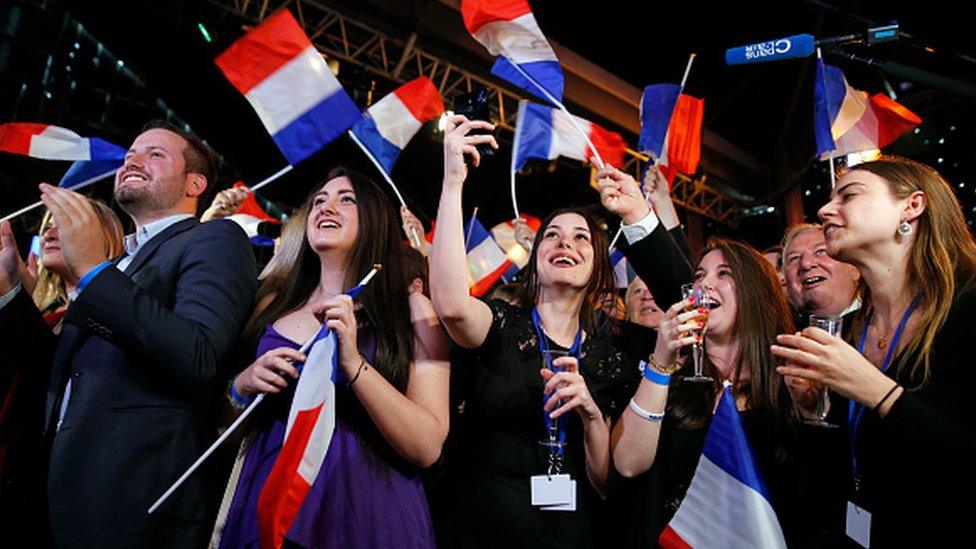MEPs get back to work: Four things to look for
- Published
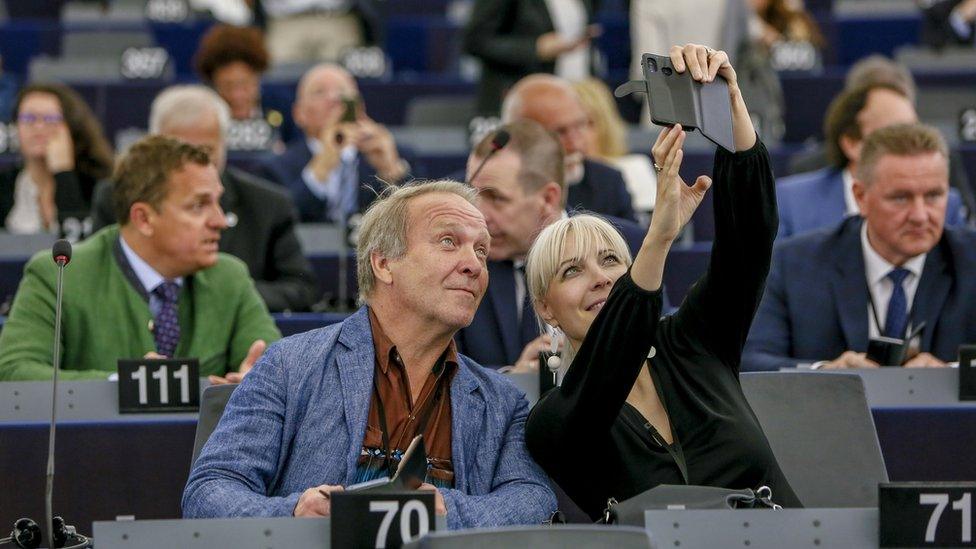
MEPs are in Strasbourg and have begun the first full sitting of the European Parliament since May's EU elections.
It comes as European leaders remain deadlocked over who should get the EU's top jobs, with talks between them resuming over in Brussels.
The European Parliament has the power to block or amend EU laws, and will have the final say on whether to ratify a Brexit deal with the UK.
Here are four things look out for as the new-look parliament gets back to work.
New faces among British MEPs
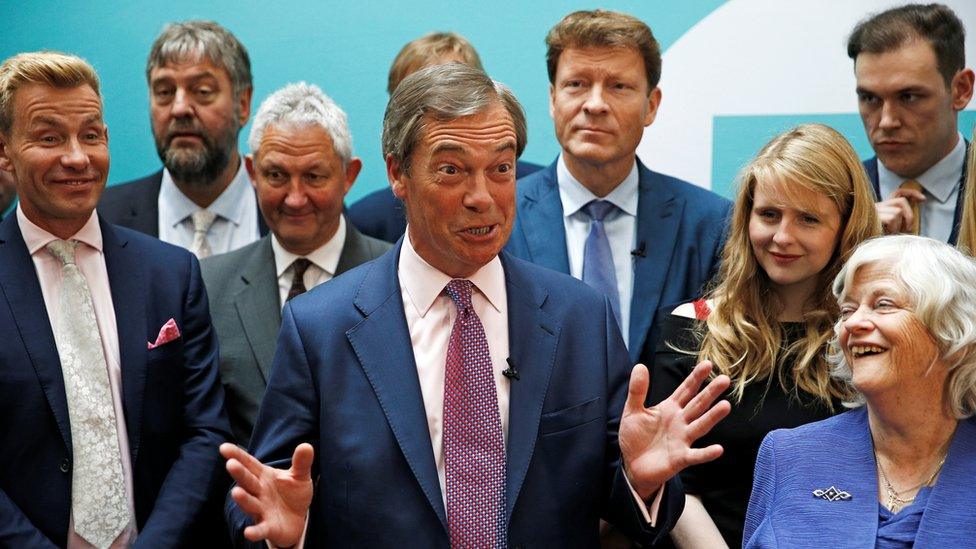
Brexit Party leader Nigel Farage will be back in Strasbourg
They are the parliamentarians who were never meant to be elected - but with Brexit delayed, the UK has sent 73 MEPs to take up their seats in Strasbourg.
With 29 MEPs, The Brexit Party will not only be the largest British party, but the joint-biggest party delegation in the European Parliament overall.
The party has yet to announce if it is joining a new trans-national group, which requires MEPs from at least seven different EU countries.
Groupless parties have more limited access to speaking time, and their leaders don't get to speak at the front, as the BBC's Adam Fleming points out:
Allow X content?
This article contains content provided by X. We ask for your permission before anything is loaded, as they may be using cookies and other technologies. You may want to read X’s cookie policy, external and privacy policy, external before accepting. To view this content choose ‘accept and continue’.

The Liberal Democrats have increased their representation from a single MEP to a group of 16 - and will no doubt want to use the platform for their pro-Remain message.
But with uncertainty surrounding the length of their tenure, it is unclear what role the British MEPs will be given in the running of the new parliament, including piloting legislation through the chamber and chairing its numerous committees.
Spitzenkandidaten - what's that?
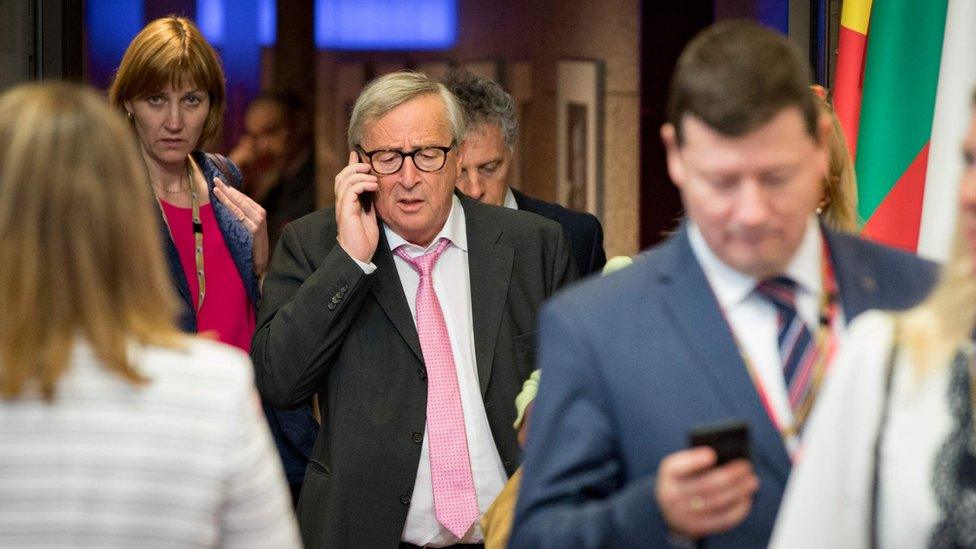
Jean-Claude Juncker is due to step down at the start of November
This month could prove an early test of mettle for MEPs in the process of deciding who becomes the next boss of another EU institution, the European Commission.
They have previously insisted that the Commission's next boss must be one of the spitzenkandidaten - or lead candidates - put forward earlier this year by the assembly's various political groups.
This process resulted in Jean-Claude Juncker - who was the candidate of the centre-right EPP group - becoming the current Commission President in 2014.
However the convention is not precisely defined in the EU's treaties, and some leaders are keen to do away with the idea altogether.
The previous parliament threatened to reject, external anyone put forward who was not a lead candidate when they face their confirmation vote in the assembly.
This week's sitting will provide a first opportunity for MEPs to react if a non-spitzenkandidat emerges as the leaders' preferred candidate.
They will have to decide how far they are willing to go to preserve the principle, ahead of the confirmation vote due later this month.
Deciding on the parliament's president
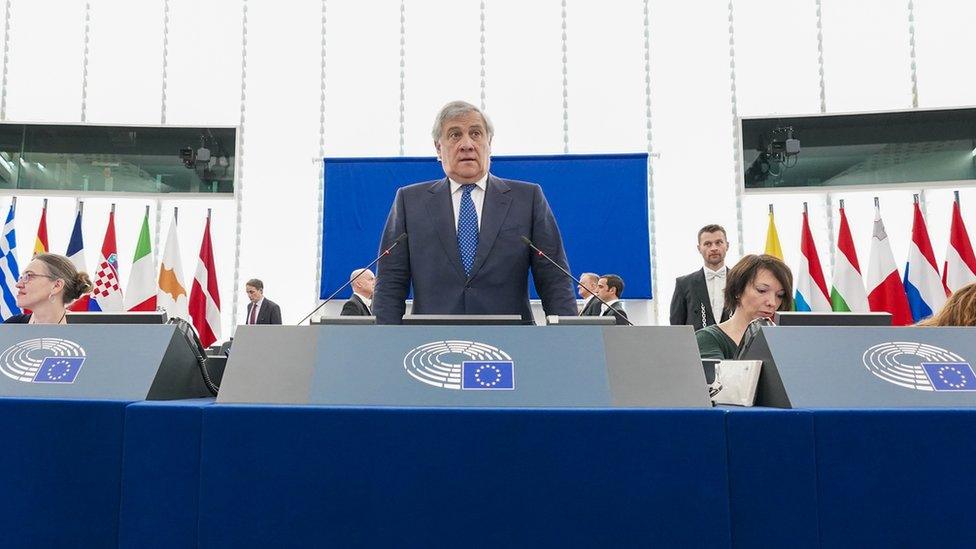
The president chairs debates in the chamber and represents the parliament internationally
MEPs are also due to make a decision on who should serve as the European Parliament's next president.
The job runs until early 2022, the mid-point in the new parliamentary session.
Candidates must be nominated by the assembly's political groups or a group of at least 38 MEPs, with the winner decided in a series of secret ballots.
Current incumbent Antonio Tajani has insisted the process is "entirely independent" of the haggling over other major positions among EU leaders.
But it remains to be seen whether agreement between leaders on the Commission presidency could result in a side-deal for the Parliament role, which would see the major political groups unite behind a common candidate.
Indeed according to one compromise deal discussed by EU leaders, the role has already been offered to German MEP Manfred Weber as a consolation prize if his bid to become the Commission president fails.
Will groups co-operate?
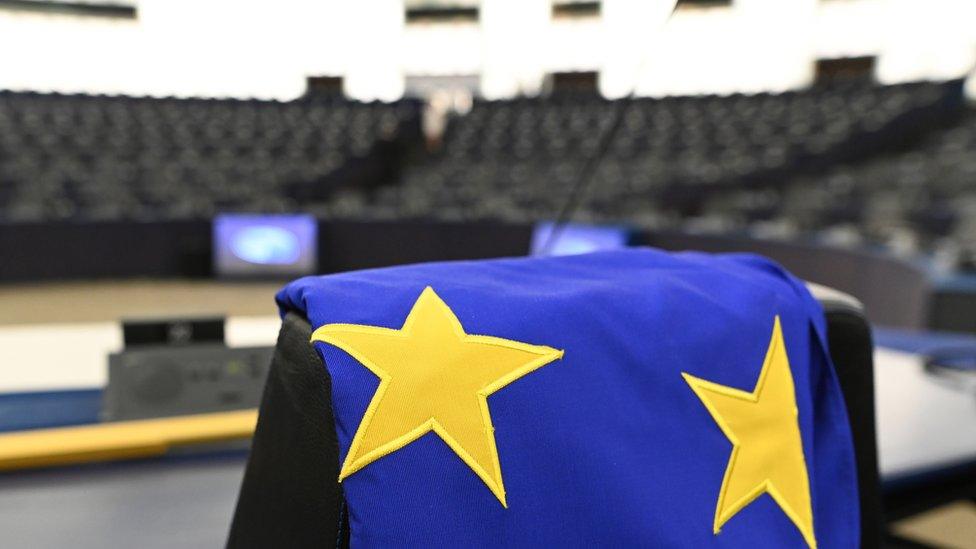
With new personnel comes a change in the political groups which house the myriad national parties represented in the parliament and provide a basic structure governing the allocation of funds, positions and speaking time in the chamber.
The National Rally party of Marine Le Pen and Italy's right-wing League party have clubbed together with Germany's Alternative for Germany (AfD) to form a new group called Identity and Democracy.
With 73 MEPs, they will be the fifth-largest group in the new parliament - and be a bigger presence than the former ENF group they have essentially replaced.
The liberal group, formerly known as ALDE, now includes MEPs from President Macron's Renaissance delegation and has rebranded as 'Renew Europe'.
The centre-right EPP and centre-left S&D remain the biggest groups but have lost the combined majority that underpinned their traditional dominance.
With the liberal, anti-EU and green groups all boosting their numbers, the power structure in the new assembly will be more fragmented.
Some of the largest groups are in talks to see if they can reach agreement on shared objectives in areas such as trade, climate change, and migration.
But even if a deal is reached, compromise could be more difficult, particularly in policy areas where the divide between parties on the left and right is often more important then where they stand on the EU project overall.
- Published27 May 2019
